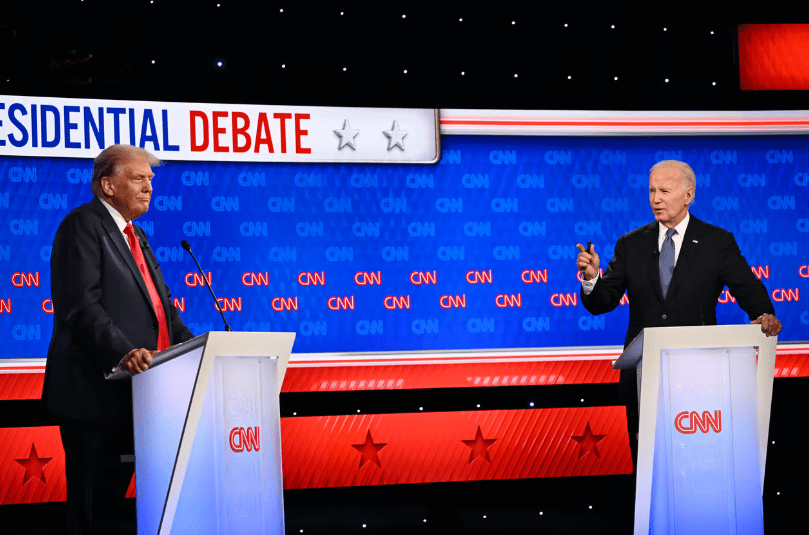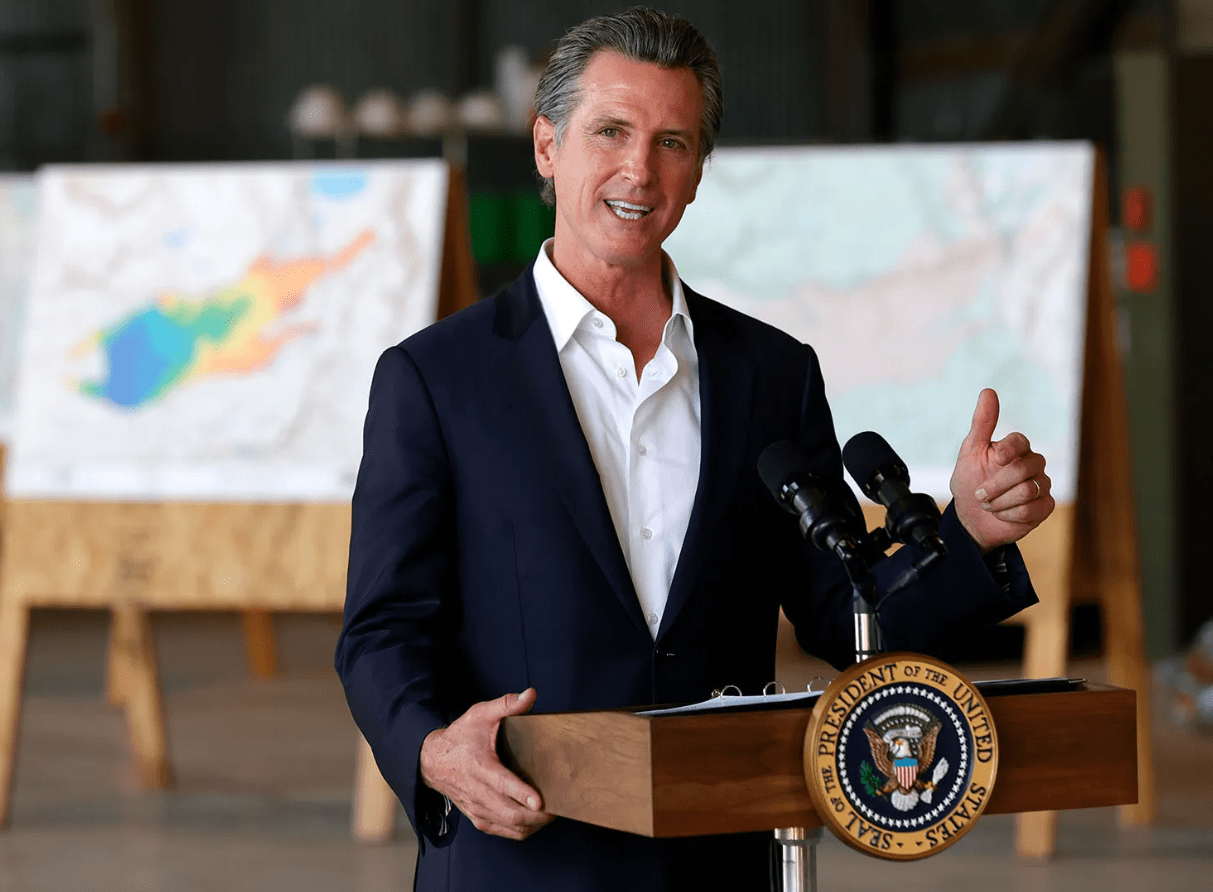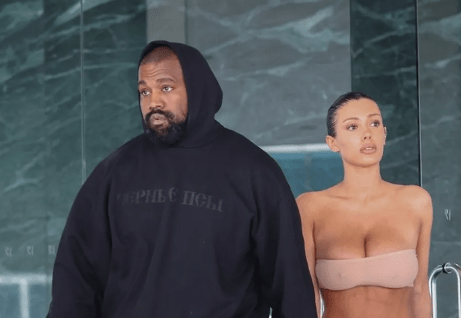In the wake of President Biden’s missteps during Thursday’s debate, his allies have publicly downplayed the incident, criticising the “overreaction” of anxious Democrats.
They have highlighted a record influx of campaign donations and pointed to the historical trend of incumbents stumbling in their first debates.
Behind the scenes, Biden’s team has been hard at work. They have been reassuring nervous donors, pleading with concerned lawmakers to remain patient, and commiserating with colleagues while preparing for a battle that could determine not only Biden’s chances in November but also whether he will remain on the ballot at all.

Efforts to stabilise Biden’s candidacy, ongoing as he spends time with his family at Camp David, appear to have at least temporarily quelled public doubt and bought some time. The ambitious and frenzied efforts by Biden’s aides, supporters, and family members to contain the damage after his incoherent debate performance against Republican rival Donald Trump have turned into a case study of a campaign in crisis.
As of Sunday, no major Democratic official has called for Biden to drop out of the race. Several have publicly expressed renewed support for him, despite worries about the party’s prospects in November sparked by his debate performance.
House Minority Leader Hakeem Jeffries (D-N.Y.) acknowledged on MSNBC’s “The Weekend” that House Democrats are discussing the future of Biden’s candidacy. He noted that these conversations would continue over the phone and virtually, as the House will be in recess next week for the Fourth of July.
However, Jeffries added, “one thing should be clear: There is a big difference between our view of the world, the country and the future, and the extreme MAGA Republican view.”


Biden’s performance on Thursday “certainly was a setback,” Jeffries added. “But of course, I believe a setback is nothing more than a setup for a comeback.”
Other top Democrats, including Reps. Nancy Pelosi (Calif.) and James E. Clyburn (S.C.), and Sens. Raphael G. Warnock (Ga.) and Chris Coons (Del.), appeared on various television channels Sunday to reaffirm their support for Biden’s re-election bid.
The public show of support followed a frantic private effort that began even before the debate ended on Thursday. Private group chats, hushed conversations, and social media were filled with concerns about Democrats’ prospects.
Biden’s aides began telling the media during the debate that the president had a cold, explaining his thin, raspy voice and unsteady delivery. Vice President Harris said immediately afterward that his “slow start” was not indicative of a broader weakness, and campaign surrogates in the spin room tried to shift the focus from Biden’s stumbles to Trump’s falsehoods and extreme comments.
The push continued Friday and through the weekend, with a rush of activity by Biden, his wife, Jill, and other allies, against the backdrop of top editorial boards, columnists, and Democratic commentators calling on the president to exit the race.
Gavin Newsom
California Governor Gavin Newsom, who won a second term during the midterms, has been tipped as a favourite to replace President Biden.
He made headlines last year by paying for billboards in conservative states like Texas and Indiana, advertising that abortion is still legal in California.
Newsom is less disliked than Biden and Harris but is still polling in the single digits, according to the latest data. This may be explained by his slightly lower name recognition among voters. Data from the January Granite State Poll in New Hampshire shows that some voters feel they do not know enough about him to form an opinion yet.
Asked after the debate if he was considering running to replace Biden, Newsom said: “Our nominee is Joe Biden – I’m looking forward to voting for him in November.”
Kamala Harris
As the current vice president, Kamala Harris would appear to be the obvious second choice if Biden decides not to run. However, much like the president, she has performed poorly in approval ratings, with a negative approval rating of 60% in mid-June.
While a vice president’s approval ratings have historically been tied to those of the president, Harris would have to find a balance between setting herself apart from Biden and not diminishing the administration’s efforts.
Harris fiercely defended Biden after the debate, saying: “People can argue about style points, but ultimately this election … has to be about substance. And the contrast is clear.”
Stacey Abrams When Georgia flipped blue in 2020, many credited Stacey Abrams for the success. The former minority leader of the Georgia House of Representatives was a prominent campaigner for Democrats ahead of the 2020 election.
However, despite this success in the South being attributed to her, Abrams has a challenging electoral record. She stood for governor in Georgia in 2018 and 2022 and lost both times, which could cast doubts on her electability within the party and among the voting public.
Pete Buttigieg Pete Buttigieg transitioned from local to national politics within a few months. The former mayor of South Bend, Indiana, ran for the Democratic nomination for president in 2020 and won the Iowa caucuses but dropped out of the race shortly thereafter. When Biden took office, he appointed Buttigieg as transport secretary, and since his move to Washington, Buttigieg has continued to make a name for himself.
Within the Democratic Party, he enjoys much popularity. He was “the most requested surrogate on the campaign trail” ahead of the 2022 midterms. If elected, Buttigieg would be the youngest ever president and the first openly gay man to hold the office.
But Buttigieg may face challenges on the campaign trail as he has previously had significant difficulties securing support from minority voter groups.
Amy Klobuchar The first woman elected to represent Minnesota in the US Senate, Amy Klobuchar has been on the national political stage since 2007. During the confirmation hearings for Supreme Court Associate Justice Brett Kavanaugh, she made headlines and drew praise for her sharp line of questioning. Klobuchar previously ran for president in 2020 and supported Biden after exiting the race.
She is seen as a moderate, someone who could unite both sides of the party and might be a close alternative to Biden. However, she has lower name recognition than her possible opponents within the party and had difficulties generating excitement for her campaign in 2020, an issue that could hinder her again.

